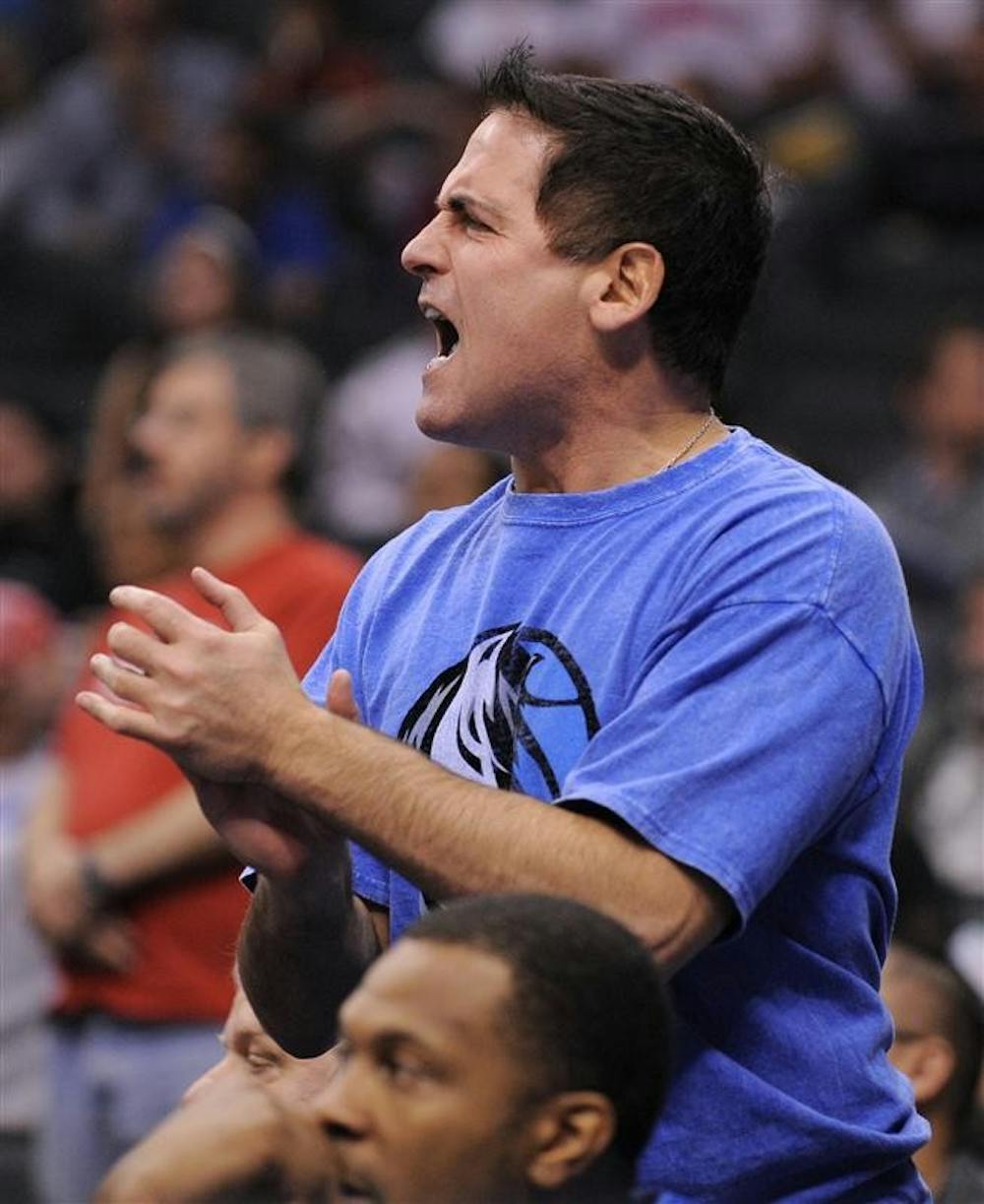WASHINGTON – Federal regulators on Monday charged Dallas Mavericks owner and IU alumnus Mark Cuban with insider trading for allegedly using confidential information on a stock sale to avoid more than $750,000 in losses.
Cuban disputed the allegations by the Securities and Exchange Commission and said he would contest them.
The SEC filed a civil lawsuit against Cuban in federal court in Dallas. The agency alleged that in June 2004, Mamma.com Inc. invited Cuban to get in on its coming stock offering after he agreed to keep the information private.
Cuban owned 6.3 percent of Mamma.com’s stock at that time and was the largest known shareholder in the search engine company, according to the SEC. The agency said Cuban knew the shares would be sold below the current market price, and a few hours after receiving the information, he told his broker to sell all 600,000 shares before the public announcement of the offering.
By selling when he did, Cuban avoided losses exceeding $750,000, the SEC said in its lawsuit. Montreal-based Mamma.com changed its name to Copernic
Inc. in June 2007.
“It is fundamentally unfair for someone to use access to nonpublic information to improperly gain an edge on the market,” Scott Friestad, the SEC’s deputy enforcement director, said in a statement. The agency alleged that Cuban acted with “scienter,” a legal term indicating knowledge of wrongdoing.
The SEC is seeking a court judgment against Cuban finding that he violated the anti-fraud provisions of the federal securities laws, an injunction against future violations, an unspecified civil penalty and restitution of the losses Cuban allegedly avoided.
Unless he is subject to an injunction, Cuban “is likely to commit such violations again in the future,” according to the SEC suit.
Cuban’s attorney said in a statement the SEC’s case “has no merit and is a product of gross abuse of prosecutorial discretion.”
“Mr. Cuban intends to contest the allegations and to demonstrate that the (SEC’s) claims are infected by the misconduct of the staff of its enforcement division,” Ralph Ferrara wrote in a note posted on Cuban’s blog.
Cuban, in his own statement, said, “I am disappointed that the (SEC) chose to bring this case based upon its enforcement staff’s win-at-any-cost ambitions. The staff’s process was result-oriented, facts be damned. The government’s claims are false, and they will be proven to be so.”
Cuban, 50, also owns Landmark Theaters, a large national chain dedicated to independent films, and the HDNet cable television channel.
He also runs a Web site called Sharesleuth.com, which bills itself as providing “independent Web-based reporting aimed at exposing securities fraud and corporate chicanery.” An announcement on the site says there are plans for a companion, BailoutSleuth.com, to track the government’s $700 billion financial rescue plan.
Cuban is one of the richest people in the world, according to Forbes magazine, which pegged his net worth at $2.3 billion as of March 2007.
Mamma.com decided in the spring of 2004 to raise capital in a so-called private placement in public equity offering, known as a PIPE, according to the SEC suit. In late June, as the PIPE moved toward closing, Mamma.com’s investment bank suggested the company invite Cuban to participate.
On June 28, Mamma.com Chief Executive Guy Faure e-mailed Cuban asking him to call him “ASAP,” the SEC suit stated. Cuban called four minutes later from the American Airlines Center in Dallas, home of the NBA’s Dallas Mavericks, and spoke to Faure for about eight minutes.
Faure, who resigned last year, began the conversation by telling Cuban he was about to give him confidential information. Cuban agreed to keep it to himself, the SEC said.
Cuban became upset and angry during the conversation and said he didn’t like PIPEs because they dilute the value of company stock for existing shareholders, according to the SEC.
At the end of the call, Cuban said, “Well, now I’m screwed. I can’t sell.”
SEC charges IU alumnus with insider trading
Regulators say Cuban avoided $750,000 in losses

Get stories like this in your inbox
Subscribe





